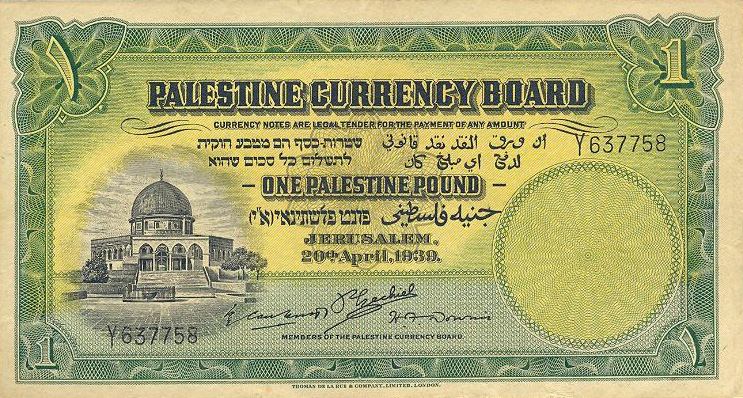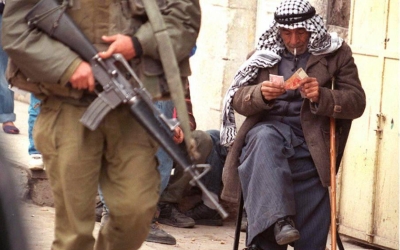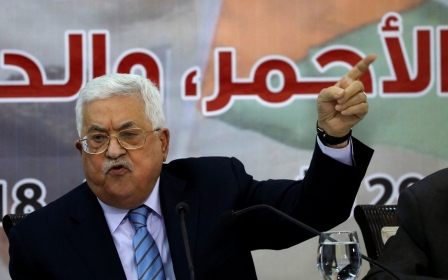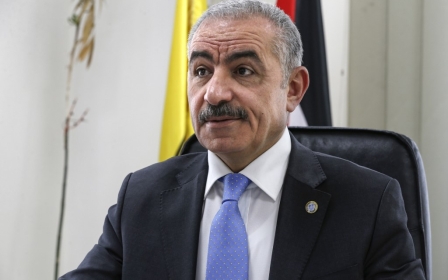A Palestinian pound? 'Impossible' without full independence, say economists
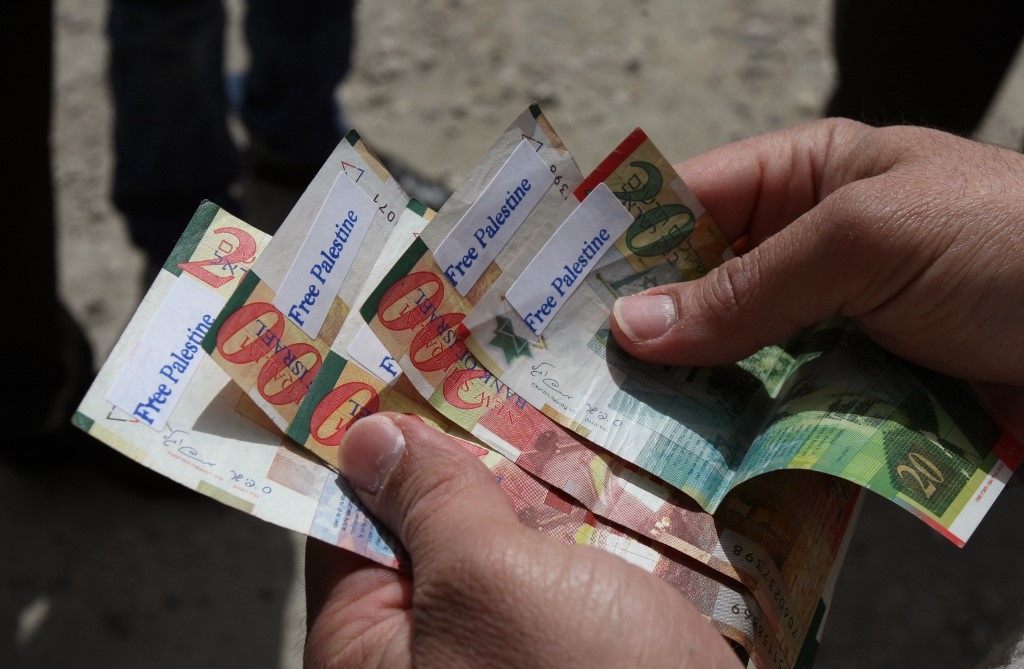
For years, many Palestinians have longed for their own currency to achieve independence from the Israeli economy - and the shekel.
'We are not forced to remain dependent on the shekel'
- Palestinian Prime Minister Mohammed Shtayyeh
With warnings that the Palestinian Authority is on the brink of collapse as Israel continues to withhold Palestinian tax revenues, and following a US-led economic workshop for Palestinians in Bahrain boycotted by the PA, there are calls for the return of the "Palestinian pound" once again.
The Palestinian pound, which bore the name “Palestine” in Arabic, Hebrew and English, was established by the British Mandate to create a special monetary system for Palestine in lieu of the Egyptian pound used at the time. It was replaced in the early 1950s by the Israeli shekel.
The loudest calls for the return of the Palestinian pound have come from Palestinian Prime Minister Mohammed Shtayyeh, who raised the idea in his first interview after he was sworn in this past April.
“There are about 25 billion shekels circulating within the Palestinian economy," he told Palestine TV. "We are not forced to remain dependent on the shekel."
New MEE newsletter: Jerusalem Dispatch
Sign up to get the latest insights and analysis on Israel-Palestine, alongside Turkey Unpacked and other MEE newsletters
During a visit to Jordan on Sunday, Shtayyeh again emphasised the importance for Palestinians to gain independence from the Israeli economy.
Currently, the shekel is among three other major currencies - the Euro, the US dollar and the Jordanian dinar - used in the occupied Palestinian territories. Observers say its use is not only symbolically difficult to swallow, but also comes at a high cost for Palestinians.
Nadine Mohammed Shatara, 25, an employee at a Palestinian bank in Ramallah, said she believes that Israel is trying to impose the shekel as the only currency in the local market.
Recently, the commission taken by banks on 100,000 shekels ($27,966) has increased from one to five percent, with some banks trying to get rid of excess liquidity through traders. Meanwhile, she said, the Israeli central bank has refused to take excess shekels off the Palestinian banks.
The result is that the Palestinian market is flooded with shekels while other major currencies decline, especially the Euro, which some banks are now refusing to give out as they shore up their supplies.
Six months ago, she pointed out, Israel decided to ban individuals from carrying more than $3,074 (11,000 NIS) in cash and checks.
“We are the only country that deals with four major currencies," said Shatara. “The occupation is trying to impose its currency on all existing currencies.”
Years in the making
The currency idea is one which has been floated for years by Palestinians and experts as a step towards a gradual disengagement from the Israeli economy and a way to revive a Palestinian economy that has struggled since the signing of the Oslo Accords between Israel and the Palestinian Liberation Organization (PLO) in the early 1990s.
Experts say the Paris Protocol - an agreement signed between the PLO and Israel - then sealed Palestinian economic dependency, giving Israel full control over external borders and the collection of import and value-added taxes.
Israel has utilised these benefits to strangle the Palestinian economy, imposing closures on the occupied Palestinian territories and withholding revenue owed to the PA in order to achieve political gains, they say.
Beyond the Paris Protocol, Israel’s control and exploitation of Palestinian natural resources, land and borders have made Palestinian economic independence hard, if not impossible, to achieve.
“The economic crisis is a complex one that dates back years, mostly caused by the Israeli occupation and its manifestations,” said Tareq Sadeq, an economics professor at Birzeit University.
Sadeq added, however, that the Palestinian leadership also bears some responsibility for its mismanagement.
'Unrealistic and impossible'
Some experts say that before a Palestinian currency can be introduced, there are much more urgent issues to be addressed. These include boosting local Palestinian production and alleviating unemployment which currently stands at 19 percent in the West Bank, and 41 percent in the Gaza Strip.
Issuing a Palestinian currency, said Sadeq, might only complicate the financial crisis right now.
'Creating a Palestinian currency requires favourable conditions to succeed, which currently do not exist'
- Tareq Sadeq, an economics professor at Birzeit University
“The strength of a currency stems from a strong and stable economy, not the opposite. A currency is merely a tool to manage the economy, it only serves as one form of damage control to any given financial crisis,” he said.
The PA, he warned, has been unable to rid itself of the current economic crisis, let alone a future one linked to the collapse of a potential Palestinian currency. A new currency, he added, would require, among other things, a stable security situation and the public's confidence in the currency.
“Creating a Palestinian currency requires favourable conditions to succeed, which currently do not exist. While Shtayyeh’s suggestion is a way of thinking outside the box, it is unrealistic and impossible,” said Sadeq.
Bilal Fallah, head of the Ramallah-based Palestine Economic Policy Research Institute (MAS), echoed Sadeq’s concerns. A Palestinian currency, he said, is an aspiration for an independent state with sovereignty over its economic resources and borders, not one under occupation.
“Creating a Palestinian currency is a risk; it cannot succeed without having a fixed currency price built on the mechanisms of demand and supply, in addition to the presence of large foreign currency reserves to maintain the value of the currency against other currencies to ensure that it doesn’t collapse,” Fallah told MEE.
He added that it would be a great risk to attempt it right now. “It would only succeed at full independence, not when the Israeli occupation is in control of the economy.”
But Shatara, the bank employee in Ramallah, said she believes a Palestinian currency would fulfil a dream for Palestinians.
"A Palestinian pound is important because it will make us control the market and political stability, and put an end to Israel's control of financial liquidity,” she said.
"In the face of all the problems, we now have to think about creating a new Palestinian currency that will guarantee our economic stability and eliminate dependence on Israel."
This article is available in French on Middle East Eye French edition.
Middle East Eye delivers independent and unrivalled coverage and analysis of the Middle East, North Africa and beyond. To learn more about republishing this content and the associated fees, please fill out this form. More about MEE can be found here.


